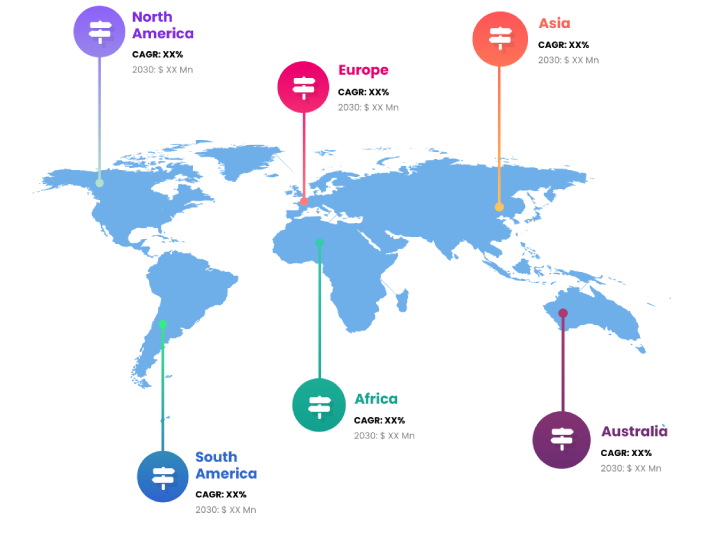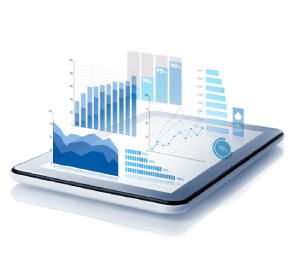Face washes formulated with components known to reduce the appearance and severity of acne are known as anti-acne cleanser. Acne is a prevalent skin condition that primarily impacts the sebaceous glands and follicles. Because of variables including high levels of pollution and dust, this skin condition affects more men than women. Spots and pimples on the face, neck, and shoulders can be treated with these cleaners if the patient has a persistent skin problem. As a result, anti-acne cleansers are crucial in reducing the mental discomfort, worry, and sadness that acne issues can cause for customers. The market is being driven by rising skin concerns and cosmetic product spending. Additionally, the product has been seeing significant growth potential on a global scale due to the leading players in the market introducing more innovative acne cleansers.

Acne is a skin disorder that damages the skin's oil glands and follicles, leading to the formation of lesions called zits or pimples. A variety of cosmetics are available to help with acne, including those that target whiteheads, blackheads, pimples, and more. Among the cosmetics available are moisturisers, face cleansers, emulsions, masks, toners, and products for the treatment of acne. A medicated cleanser that helps clear the skin after usage and contains ingredients that combat acne is called an anti-acne cleanser. In order to help clear up skin while washing it, these cleansers contain acne-fighting ingredients like salicylic acid, sodium sulfacetamide, or Benzoyl Peroxide. In addition to reducing redness and swelling, salicylic acid aids in the unclogging of blocked pores. While benzoyl peroxide exfoliates the skin, it also kills microbes. Sodium sulfacetamide inhibits the growth of bacteria.
The expansion of the anti-acne cleanser industry was hindered by the COVID-19 pandemic. Managing their operations during the COVID-19 epidemic has been challenging for the enterprises due to lockdown limitations and the shutdown of manufacturing locations, logistics, and distribution channels. Companies in the skincare industry saw a drop in sales as a result of these regulations, including L'Oréal S.A., Unilever Plc., Johnson & Johnson Services, Inc., Shiseido Co., Limited, Amorepacific, and Beiersdorf AG.
Consumers' growing knowledge of the significance of skin care is fueling the expansion of the anti-acne cleansers industry. Factors propelling the anti-acne cleanser market include rising consciousness about the importance of skin health, the prevalence of skin problems, and ways to improve the skin's appearance. Another factor driving the expansion of the anti-acne cleanser market is the proliferation of cosmetic and dermatological treatment clinics around the world. Therefore, the market expansion of anti-acne cleansers has been driven by the increase in dermatological centers, which is a result of the growing awareness of the importance of skin care.
The market for anti-acne cleansers is expanding due to the increasing demand for cosmetics and beauty goods. The rising disposable income and heightened self-consciousness about one's appearance are fueling an increase in cosmetic product purchases, which in turn is fueling the expansion of the anti-acne cleansers market. Furthermore, the anti-acne cleanser market is experiencing expansion due to factors such as an increase in online shopping and increased purchasing power. Premium personal care and beauty items, for example, are predicted to expand at a CAGR of 54% from FY21-26, largely due to an increase in discretionary income and the size of India's middle class. This means that the anti-acne cleanser market is sensitive to changes in consumer expenditure on cosmetics.
Depending on the skin type, anti-acne cleansers can cause a variety of adverse effects, including reddening, drying out the skin, itching, peeling, and rashes. Customers should seek the advice of a dermatologist without delay if they experience any of these negative side effects. The anti-acne cleanser market is hindered by the prevalence of these allergic responses to the product. One example is that skin dryness and irritation are the most common adverse reactions to skin washing chemicals, as stated in a National Institutes of Health article. Instead of using an anti-acne cleanser, the article suggests using a dermatologic bar or liquid cleanser that is anonionic and fragrance-free. As a result, the decreasing demand for these cleansers is due to growing worries about their potential negative effects.
The need for anti-acne cleansers is driven by the spike in skincare product sales and the increasing popularity of grooming activities. Factors pertaining to the physical and mental health of potential buyers motivate the product. People are showing off a more streamlined appearance and lifestyle, and spending more on personal care goods, thanks to their increased disposable income. The main companies compete by offering skin-specific products. In addition, the trend analysis discusses the creative approaches that businesses take to appeal to consumers' tastes and morals. The market caters to the desire of consumers for a healthier lifestyle, which encompasses a positive outlook on skin health and other comparable aspects. This is seen as a chance to meet customer demands with a valuable product that brings them more happiness.
Report Coverage
Global Anti-acne cleanser research report categorizes the market for global based on various segments and regions, forecasts revenue growth, and analyzes trends in each submarket. Global Anti-acne cleanser report analyses the key growth drivers, opportunities, and challenges influencing the global market. Recent market developments and Anti-acne cleanser competitive strategies such as expansion, product launch and development, partnership, merger, and acquisition have been included to draw the competitive landscape in the market. The report strategically identifies and profiles the key Anti-acne cleanser market players and analyses their core competencies in each global market sub-segments.
| REPORT ATTRIBUTES | DETAILS |
|---|---|
| Study Period | 2017-2031 |
| Base Year | 2024 |
| Forecast Period | 2024-2031 |
| Historical Period | 2017-2021 |
| Unit | Value (USD Billion) |
| Key Companies Profiled | L’Oréal Paris, Sephora USA Inc., La Roche-Posay, Johnson & Johnson Consumer Inc. (Neutrogena), KOSÉ, Clinique Laboratories, llc., The Proactiv Company LLC, DoctorLi, Vichy Laboratories, Murad LLC, The Mentholatum Company |
| Segments Covered | • By Product |
| Customization Scope | Free report customization (equivalent to up to 3 analyst working days) with purchase. Addition or alteration to country, regional & segment scope |
Key Points Covered in the Report
- Market Revenue of Anti-acne cleanser Market from 2021 to 2031.
- Market Forecast for Anti-acne cleanser Market from 2021 to 2031.
- Regional Market Share and Revenue from 2021 to 2031.
- Country Market share within region from 2021 to 2031.
- Key Type and Application Revenue and forecast.
- Company Market Share Analysis, Anti-acne cleanser competitive scenario, ranking, and detailed company
profiles. - Market driver, restraints, and detailed COVID-19 impact on Anti-acne cleanser
Market
Competitive Environment:
The research provides an accurate study of the major organisations and companies operating in the global Anti-acne cleanser market, along with a comparative evaluation based on their product portfolios, corporate summaries, geographic reach, business plans, Anti-acne cleanser market shares in specific segments, and SWOT analyses. A detailed analysis of the firms' recent news and developments, such as product development, inventions, joint ventures, partnerships, mergers and acquisitions, strategic alliances, and other activities, is also included in the study. This makes it possible to assess the level of market competition as a whole.
List of Major Market Participants
L’Oréal Paris, Sephora USA Inc., La Roche-Posay, Johnson & Johnson Consumer Inc. (Neutrogena), KOSÉ, Clinique Laboratories, llc., The Proactiv Company LLC, DoctorLi, Vichy Laboratories, Murad LLC, The Mentholatum Company
Primary Target Market
- Market Players of Anti-acne cleanser
- Investors
- End-users
- Government Authorities
- Consulting And Research Firm
- Venture capitalists
- Third-party knowledge providers
- Value-Added Resellers (VARs)
Market Segment:
This study forecasts global, regional, and country revenue from 2019 to 2031. INFINITIVE DATA EXPERT has segmented the global Anti-acne cleanser market based on the below-mentioned segments:
Global Anti-acne cleanser Market, By Type
Mask
Creams & Lotions
Cleanser & Toner
Others (Soaps and Oils)
Global Anti-acne cleanser market, By Gender
Women
Men
Global Anti-acne cleanser Market, By Industry Vertical
Grooming & Cosmetics
Skincare
Chemical & Pharmaceutical
Face Products & Beauty Treatment
Others
Global Anti-acne cleanser market, Regional Analysis
- Europe: Germany, Uk, France, Italy, Spain, Russia, Rest of Europe
- The Asia Pacific: China,Japan,India,South Korea,Australia,Rest of Asia Pacific
- South America: Brazil, Argentina, Rest of South America
- Middle East & Africa: UAE, Saudi Arabia, Qatar, South Africa, Rest of Middle East & Africa
You will get in-depth and extensive anti acne cleanser market market research and competitor analysis for your business to help you develop more profound insights into the anti acne cleanser market Market.
Through INFINITIVE Data Expert is a professional Market Research services, I will identify the anti acne cleanser market market size, demand & opportunities, growth rate, and target audience with a comprehensive analysis of your competitors.



